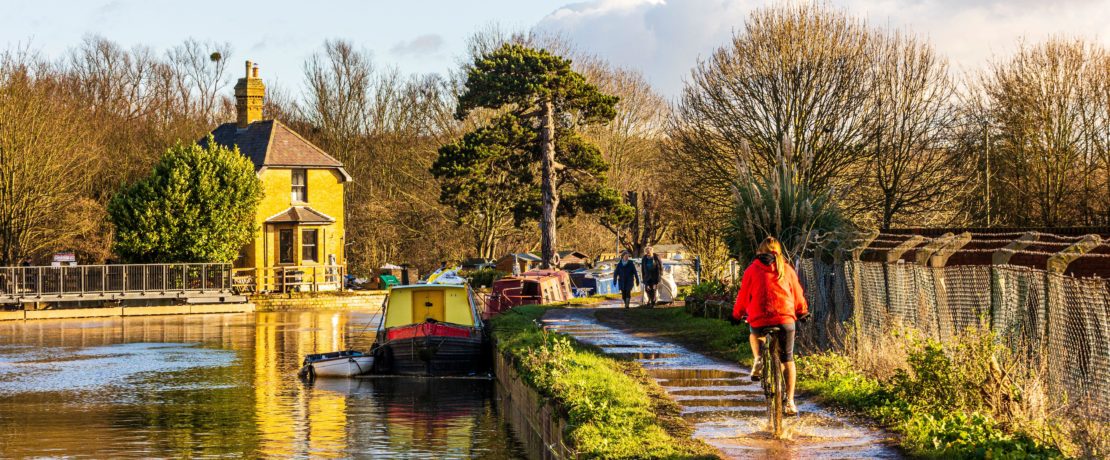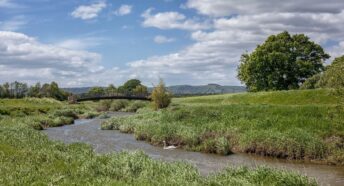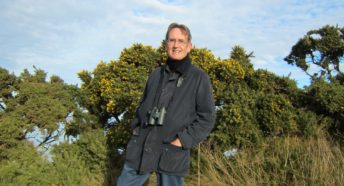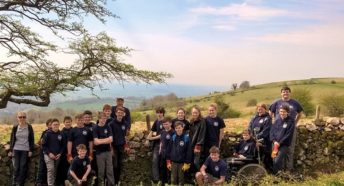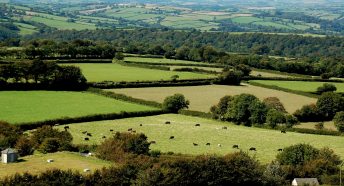Feargal Sharkey’s mission to protect England’s rivers and streams
The Northern Irish former punk singer Feargal Sharkey has turned his legendary energy to a new cause – that of England’s beleaguered and abused rivers and streams.
The first river I loved was the Faughan, just outside Derry. At 11 years old, I could get a bus from the middle of town and 20 minutes later be standing on the bank, where there was a reasonable chance of catching salmon and brown trout. I spent incredibly happy summers through my early adolescence cycling off to Donegal and fishing for trout, sea trout and salmon all over the west coast of Ireland.
When I came to England it was a bit of a shock. Why, I thought, would anyone want to sit by a canal to catch roach? Then I realised there were these things called chalk streams, with springs of the cleanest, most pristine water on the planet, welling at a constant cool temperature and constant rate of flow; a naturally replenishing, remarkably stable habitat with huge biodiversity.
Major threats
There are two major threats to our natural waterways, and both impact the quantity and quality of water. First, the water industry: company directors are obliged to make money for their shareholders, and an unforgivable lack of political oversight and failed regulation means they just game the system. We’ve all seen the results: empty rivers and rivers full of sewage. The government is terrified of making them liable, because if they do, most would have to declare themselves bankrupt.
The second threat is agriculture. It takes 60 tonnes of water to produce one tonne of potatoes. Yet 50% of the entire UK potato crop is grown in East Anglia, where less rain falls than in Sudan. We’re draining every chalk stream dry to sustain crops that shouldn’t be there in the first place. And on chalk downs, where there’s about an inch of topsoil, they’re growing wheat and barley. How much fertiliser does it take to get yield out of that miserable soil? When it rains, that all runs off, into the rivers. That’s why there’s algae on the Lea now, instead of the ranunculus weed you should be seeing. Meanwhile, in the Wye Valley, there’s a choice between rearing 20 million chickens or saving the river.
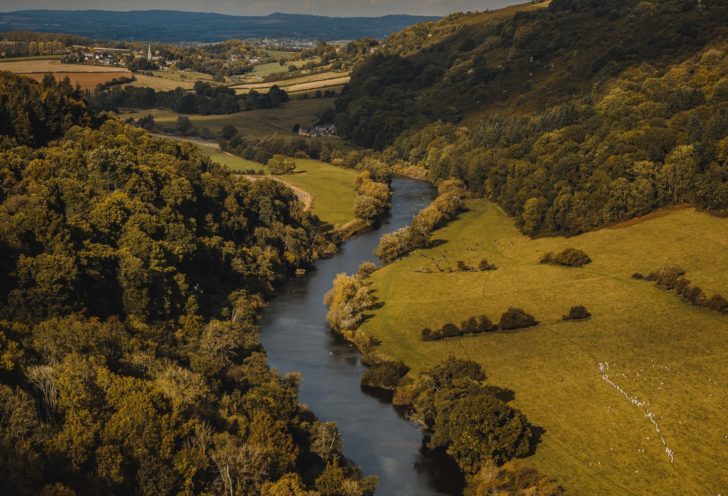
‘Something was wrong’
When I joined the fishing club I’m now president of, Amwell Magna Fishery, it was trying to get Thames Water to restore flow to the River Lea. We had to prepare to take the Environment Agency to the High Court before it agreed to resolve the issue. It made me wonder what else was going on, so I started learning about the water industry, sewage, land management, run-off, fertiliser, all that stuff. And I discovered other groups trying to achieve similar improvements, sometimes for decades. Decent, normal people who knew something was wrong. People whose trust in the regulator, the water companies and even in charities was being abused. I found that unforgivable.
A safe place for wildlife
There’s something sanity-saving about having access to a place like the stretch of the Lea managed by the Amwell Magna Fishery. And we’ll go to huge lengths to protect it. Coming down here on a summer’s morning or evening, you’ll often find whole families picnicking, church bells pealing, not a fishing rod in sight. And there’s all sorts of wildlife – it’s a safe place for them.
We recently installed a trail camera that sends a text alert if something triggers the camera. The first night, I was alerted to a muntjac deer and fawn heading up the river; then, five minutes later, a fox following the muntjac; two minutes after that, the fawn and muntjac running the other way; 30 seconds after, the fox running back after them… I decided maybe I didn’t need a running commentary at 4am, after all!
We have the sole remaining breeding populations of brown trout downstream of Hertford. In autumn, the cock (male) fish start spreading out along the river. Their lower jaw grows into a massive hook, which they use to batter the bejesus out of each other. You can watch it happening, and it’s amazing.
‘Don’t be afraid to challenge authority’
We are going to run out of water. The National Audit Office anticipates we’ll soon be short four billion litres a day – about 30% of current demand. London, capital of a G7 nation, is ninth on a list of global cities likely to run out of water, along with the likes of Cape Town, Sao Paulo, Jakarta and Mexico City. Ofwat could have put everyone on a meter 30 years ago and set a limit for reasonable use. There’s been no serious attempt at public education. There is legislation that obliges water companies to do that, but if you want to effect major behavioural change, why ask a water company? It’s not surprising we get poor campaigns. Even huge, centralised campaigns for seatbelts and quitting smoking took a generation to make headway.
I started getting into politics at 10 years old, and I learned two things: don’t ever be afraid to challenge authority, and don’t be afraid to fight an injustice. But I don’t want to be doing it. I want out as quickly as I can, so I can go back to being an obscure bloke who used to make records.
As told to Amy-Jane Beer.
About the author
The former frontman of punk band The Undertones, solo artist and music industry mover and shaker Feargal Sharkey OBE is now a passionate campaigner for cleaner waterways.
A version of this article was originally published in CPRE’s award-winning magazine, Countryside Voices. You’ll have Countryside Voices sent to your door three times a year, as well as access to other benefits including discounts on attraction visits and countryside kit from major high street stores when you join as a CPRE member. Join us now.
